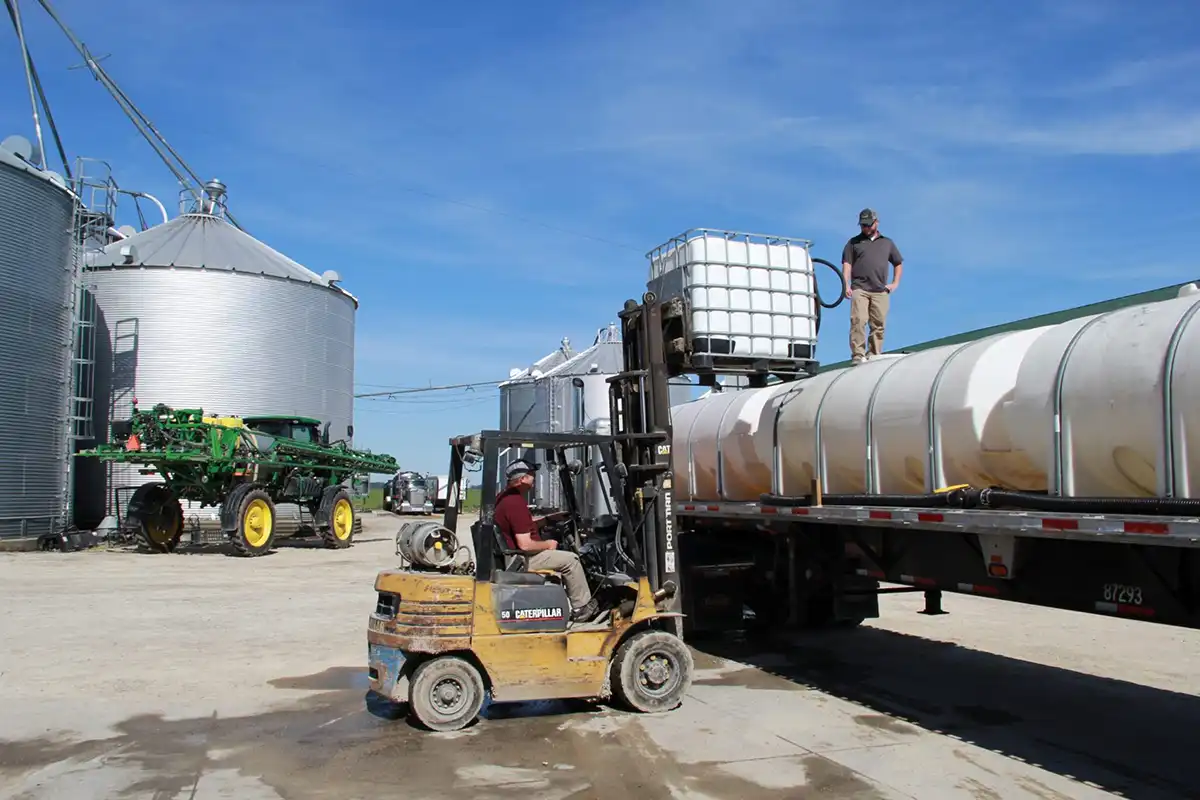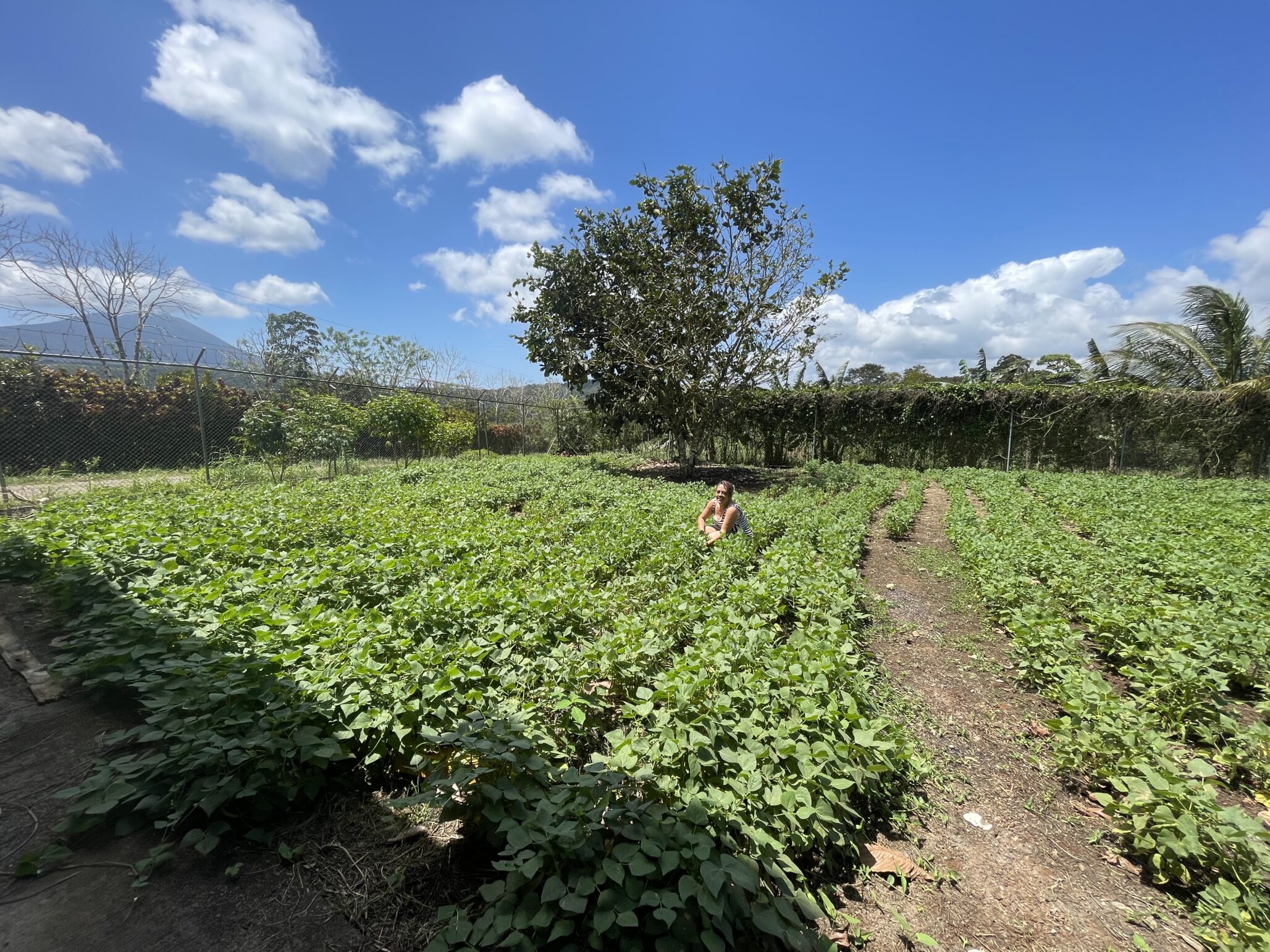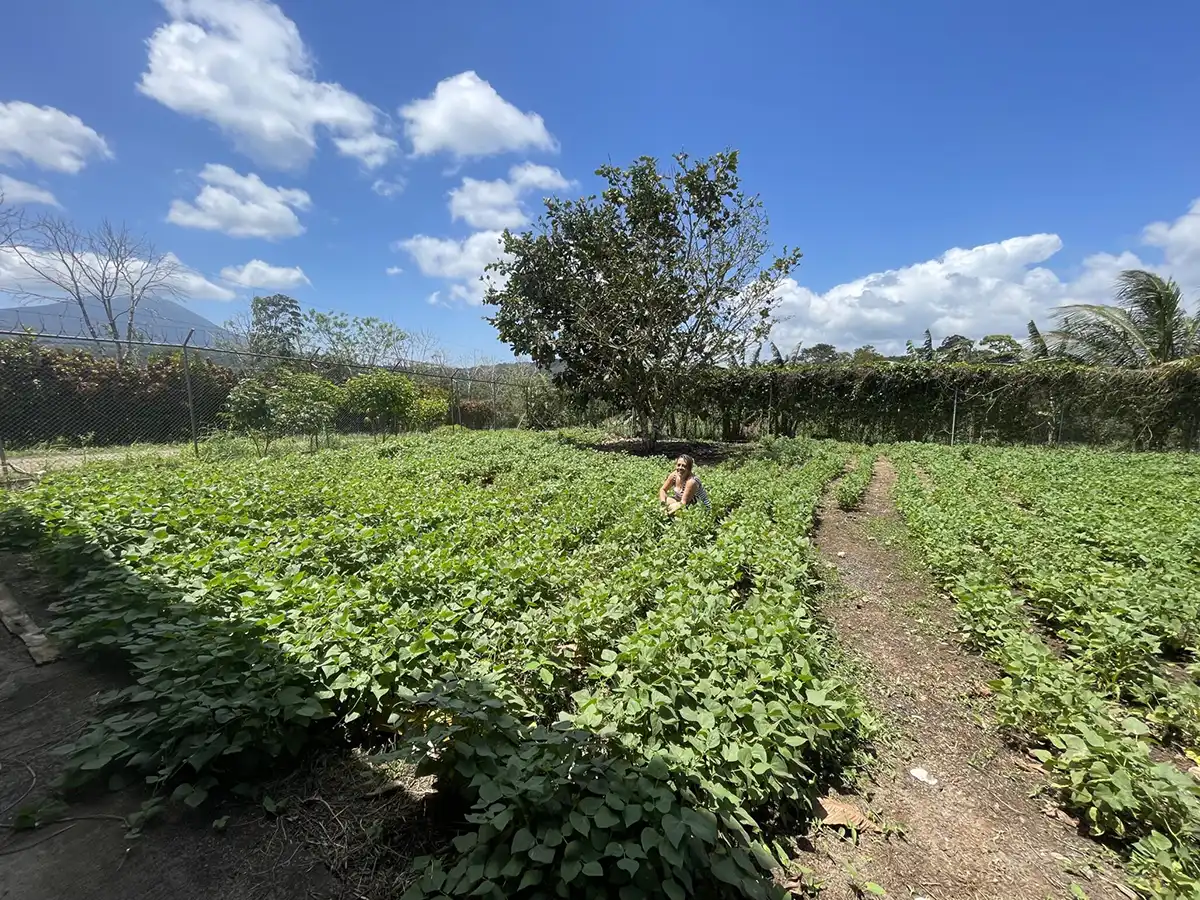Across the Corn Belt, farmers are investing in infrastructure, research shows: grain bins, bigger buildings, smarter machinery. But it’s not just getting bigger that’s driving them – it’s getting different: diversifying farm operations with new revenue streams.
“In the 20 years just past, it’s our sense the value of hard assets at the farm level has grown dramatically,” explains Mitch Eviston, who leads Meristem Crop Performance, a recently launched provider of crop input additives. “This has happened even as the channel infrastructure has been slow to right-size their own investment.”
He points to several trends:
More farmers are spraying their own crops. According to recent Purdue University research, the number of acres being farmed to achieve the breakeven point for ownership of a self-propelled sprayer is 2,740. Added value comes from control gained: they can precisely schedule application when it’s best for any given field. Another factor is the ease of use new rigs offer with guidance systems and precise, automated control of booms and nozzles.
Farms are adding grain storage capacity. Research conducted by Ag Economic Insights says “across the 18 select states, on-farm capacity increased by 1.68 billion bushels (from 2000 to 2014), a total increase of 17.6% (in that period).” When grain storage and drying is available closer to home, producers gain more control over harvest and marketing. Plus, they are investing in their own infrastructure and not someone else’s.
Squeezed farmers are looking for supplier concessions. Some suppliers became bloated during the hey-days of $8 corn and $16 soybeans (2009 – 2013 or so) and may have had trouble downsizing in the intervening years. “In 2017, farm profits are down nearly 50% since 2013. At the same time, expenses for those farmers have only fallen 1.4%,” says one USDA report.
Eviston, formerly with Winfield, says over-capacity in the channel is adding too much cost – hefty expenses national players pass on to farmers. This creates new space and opportunities for efficient and aggressive next generation entrepreneurs at farm-level.
“There’s a big opening for a new farmer-based dealer model that is more nimble, local and focused on ROI,” he says. “They are squeezing costs out of their own operations and helping others do the same. And now they have better technology to help them do it.”
Atha Bros., LLC: Focused on Top Results
At Atha Bros. in Agency, Mo., Reid Atha and his brothers Regan and Riley operate a diversified farming operation that also serves fellow growers with Beck’s seed and Meristem crop additives. He says the business got serious in 2013.
“We didn’t know if it would work, but our wives had good jobs, we had a little money from $7 corn, and we decided to push ahead,” he remembers.
Service, technology and cost control has been an important part of the operation from the start.
“At our farm, we know that 8 or 9-bushel (yield) difference can be what puts you beyond breakeven,” he says. “Technology has allowed us to fine-tune our results, but you have to be willing to sit down and figure it out.”
Atha says overlaying seeding, fertility, and yield maps helps track return on investment for inputs and be more precise when investing in something new. When they confirm a tactic and/or a product has yield advantage, they share that information with their farmer-customers. Atha says the price point for Meristem products has made it easy for him to recommend, especially after the brothers saw it more than paying for itself in their own operation.
“If we try something that will save us money or gain us a little yield advantage – it might be only five or six bucks – but over 4,000 acres or so, that adds up.”
Plus, they’ve found added Meristem benefits to their multi-faceted business.
“That’s really why we sell seed and deal in Meristem products,” says Atha. “They bring a good ROI to crop production, but It’s also a natural fit for us to be able to spread our business costs over additional revenue streams.”
Atha Bros. is just one example of farm operations that are big, high-tech and complicated, but still family-owned and operated, says Rob McClelland, co-director of Meristem, who has visited “dozens” of such operations over the past year.
“They are beginning to realize they can keep more of what they earn on the farm if they invest a little more in their infrastructure and diversify their revenue,” he says. “They are providing custom application services, custom farming, selling seed, storing grain, offering precision ag services. They are growing in ways younger family members can get excited about, and I think that’s one of the motivators.”
Axis Seed Direct: Entrepreneurial Spirit
Andy Paulson of Genoa, Ill., grew up on a family farm, but found a different path to stay close to crop production. He and his wife Sarah operate Axis Seed Direct, a company built to bring the very best corn and soybean genetics and trait packages to meet specific needs of farmers in Northern Illinois and southern Wisconsin. In addition to seed, Paulson has found the Meristem line of products to offer a solid ROI for his customers.
“Meristem’s HOMESTRETCH MAINTAIN is a good cost-effective tool to help these seed varieties meet their potential,” he explains. He also helps schedule custom application for those he serves.
“We determined that we wanted to build something of our own,” says Paulson of the decision they made in 2015. “I wanted to put my time and money into growing a business, not just working in someone else’s business.”
Earlier in his career, Paulson worked with David Hintzsche at Hintzche Fertilizer where he was general manager of the Axis division he later bought. The family values he saw expressed there made a positive impression.
“Hopefully, I would like to build a legacy and leave a business my kids can continue,” Paulson smiles, adding “but they will have to work to earn it.” To him, family is key. “The most important three things in my life are my wife, my son and my daughter,” he says.
Performance Ag Services: Creating Big-league Value
After seven years of playing pro baseball and another eight years working for AgriLand FS, Bob Van Iten jumped at an opportunity to become a partner in Performance Ag Services, LLC. Missouri Valley, Iowa. Van Iten, who married into a local Iowa family with farm connections, saw it as a way to stay close to the land and build equity in a business through partnership.
“In 2018, I figured it might be a good time to invest in something I could grow for the future – something that I could work on growing as my children grow,” he remembers.
His new partners Mason Loftus and Brian Dickinson had acquired a Pioneer seed business in 2014 and wanted to be able to expand the business with chemicals and application. Both men also farmed, and they all saw a chance to keep farming and grow a crop input business as well.
“We sat down and talked about the industry,” remembers Bob. “We knew we were going to be able to save farmers a lot of money at the farm gate if we focused on it.”
Now Van Iten is busy putting crop protection programs together for farmers, including several products from Meristem Crop Performance.
“For us, Meristem offers another way to source quality inputs at a price that works for farmers,” says Van Iten. “More importantly, we aren’t giving up any efficacy at all. These are great performers.”
The business has also been able to help others in their quest to stay on the farm. They contract with four young operators in the local area when application services are needed.
“These guys are just starting to build their farm operations,” Van Iten explains. “They supplement their income by custom-spraying for us.”
Van Iten, who spent years in the minor leagues, first in the Phillies system, then playing a spring try-out season with the Minnesota Twins, now enjoys coaching – both youth baseball and top-notch corn/soybean producers. He and his partners intend to build a thriving local business based on service and cost-savings.
“We want to keep growing this business and creating value for those we serve and our families as we do it,” Van Iten says. “We need to create a sustainable business. We are looking at all the services we can efficiently provide to better serve farmers.”
Meristem’s Mitch Eviston feels this kind of operation – one not stuck paying for big corporate buildings and top-heavy management – provides a smart alternative for many farmers. He says these new players are more likely to be responsive and efficient.
“It’s easier for them to diversify the investment over their own acres and the new revenue streams they initiate,” he explains. “They also add the value of knowing the local people, local soils, microclimates and farming practices.”













